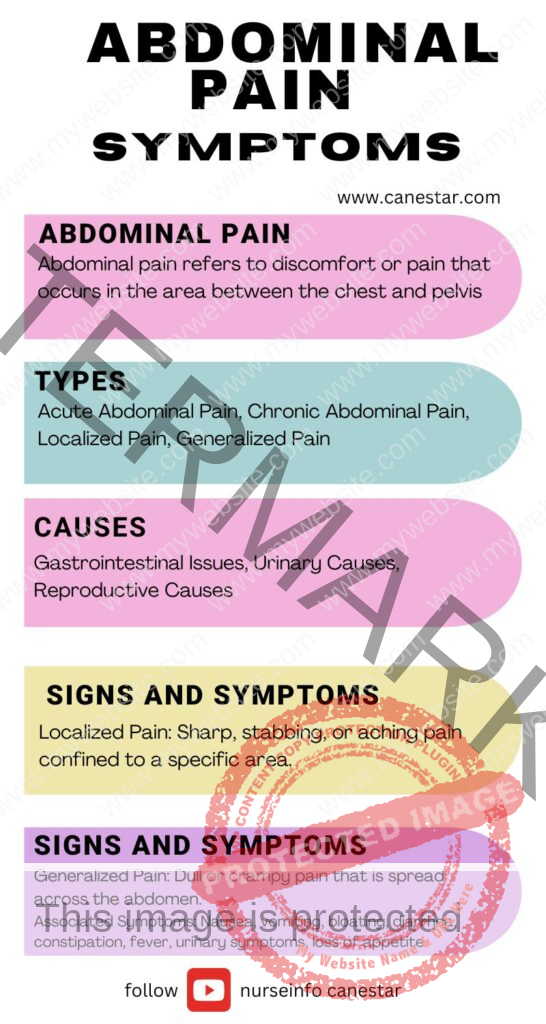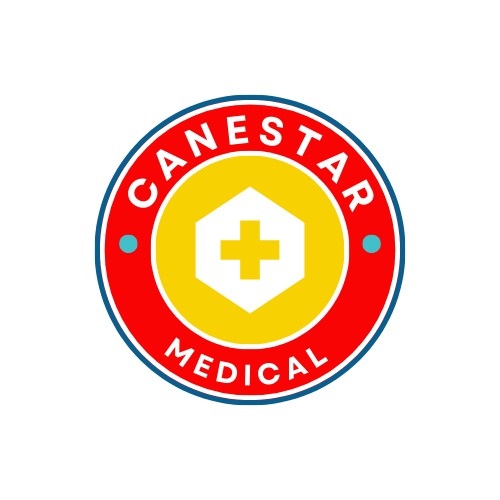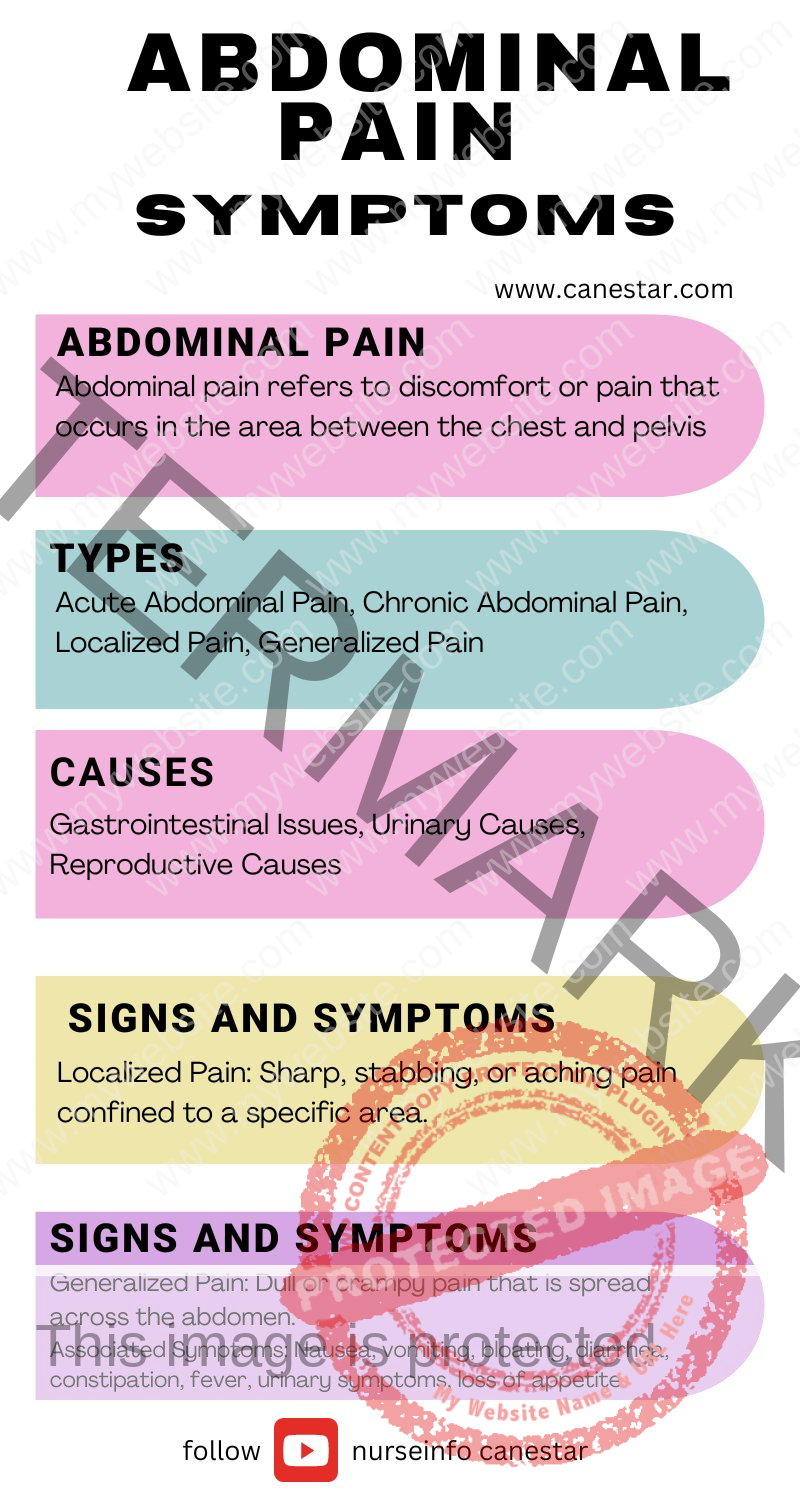Abdominal Pain Symptoms – Definition, types, causes, signs and symptoms, diagnosis, treatment and prevention
Abdominal Pain Symptoms – Definition, types, causes, signs and symptoms, diagnosis, treatment and prevention
Abdominal Pain
Definition
Abdominal pain refers to discomfort or pain that occurs in the area between the chest and pelvis. It is a common symptom and can be caused by a wide variety of conditions.
Types
- Acute Abdominal Pain: Sudden onset, lasting for hours to a few days, often associated with a specific, urgent cause.
- Chronic Abdominal Pain: Persistent or recurrent pain lasting for months or longer, often associated with underlying conditions.
- Localized Pain: Pain confined to one area of the abdomen, indicating a problem with a specific organ.
- Generalized Pain: Widespread pain, often indicating a more systemic or diffuse issue.
Causes
- Gastrointestinal Issues: Appendicitis, gastritis, gastroenteritis, irritable bowel syndrome (IBS), Crohn’s disease, ulcerative colitis.
- Urinary Causes: Urinary tract infections (UTIs), kidney stones.
- Reproductive Causes: Ovarian cysts, ectopic pregnancy, endometriosis (in females).
- Other Causes: Hernia, gallstones, pancreatitis, abdominal aortic aneurysm.
Signs and Symptoms
- Localized Pain: Sharp, stabbing, or aching pain confined to a specific area.
- Generalized Pain: Dull or crampy pain that is spread across the abdomen.
- Associated Symptoms: Nausea, vomiting, bloating, diarrhea, constipation, fever, urinary symptoms, loss of appetite.
Diagnosis
- Physical Examination: Includes palpation of the abdomen, checking for tenderness, guarding, and rebound tenderness.
- Imaging: Ultrasound, CT scan, MRI to visualize internal organs.
- Laboratory Tests: Blood tests, urine tests, stool tests to check for infections, inflammation, and other abnormalities.
- Endoscopy/Colonoscopy: To directly visualize the gastrointestinal tract.
Treatment
- Medications: Pain relievers, antacids, antiemetics, antibiotics, depending on the underlying cause.
- Surgical Intervention: In cases of appendicitis, gallstones, hernia, or other surgical conditions.
- Lifestyle Modifications: Dietary changes, stress management, hydration, and regular exercise for chronic conditions like IBS.
Prevention
- Healthy Diet: Eating a balanced diet rich in fiber, fruits, and vegetables to prevent gastrointestinal issues.
- Hydration: Drinking plenty of water to avoid dehydration-related abdominal pain.
- Regular Exercise: Helps maintain a healthy digestive system and reduces stress.
- Avoidance of Triggers: Identifying and avoiding foods or substances that trigger symptoms, especially in conditions like IBS or food intolerances.
- Regular Check-ups: Early detection and management of underlying conditions can prevent severe abdominal pain episodes.
Abdominal pain can range from mild discomfort to a severe, life-threatening condition. Early diagnosis and appropriate management are crucial for effective treatment and prevention of complications.

Disclaimer: This information is given for educational purpose. This information is provided for educational and informational purposes only and does not constitute providing medical advice or professional services. The information provided should not be used for diagnosing or treating a health problem or disease, and those seeking personal medical advice should consult with a licensed physician. Always seek the advice of your doctor or other qualified health provider regarding a medical condition.

